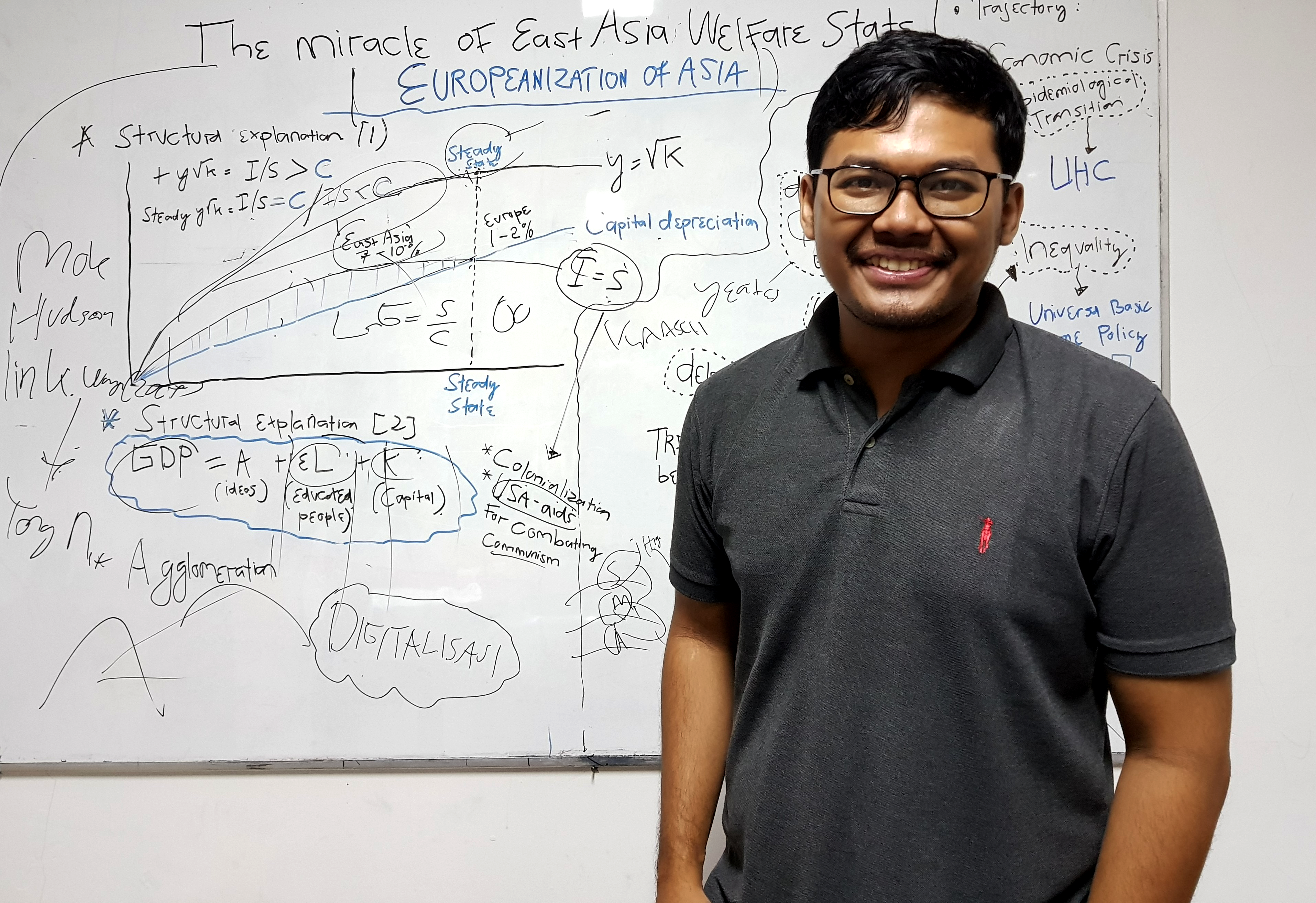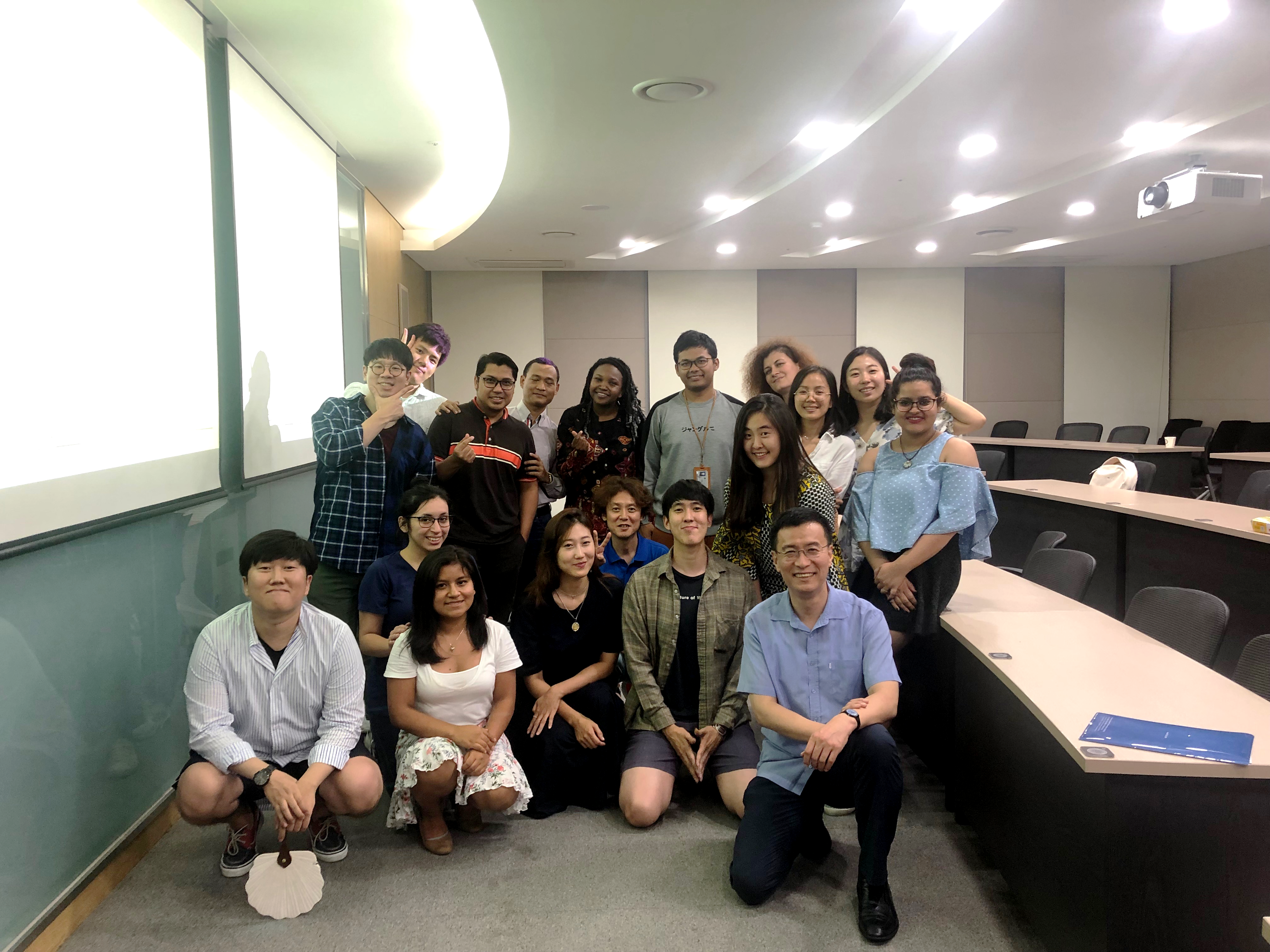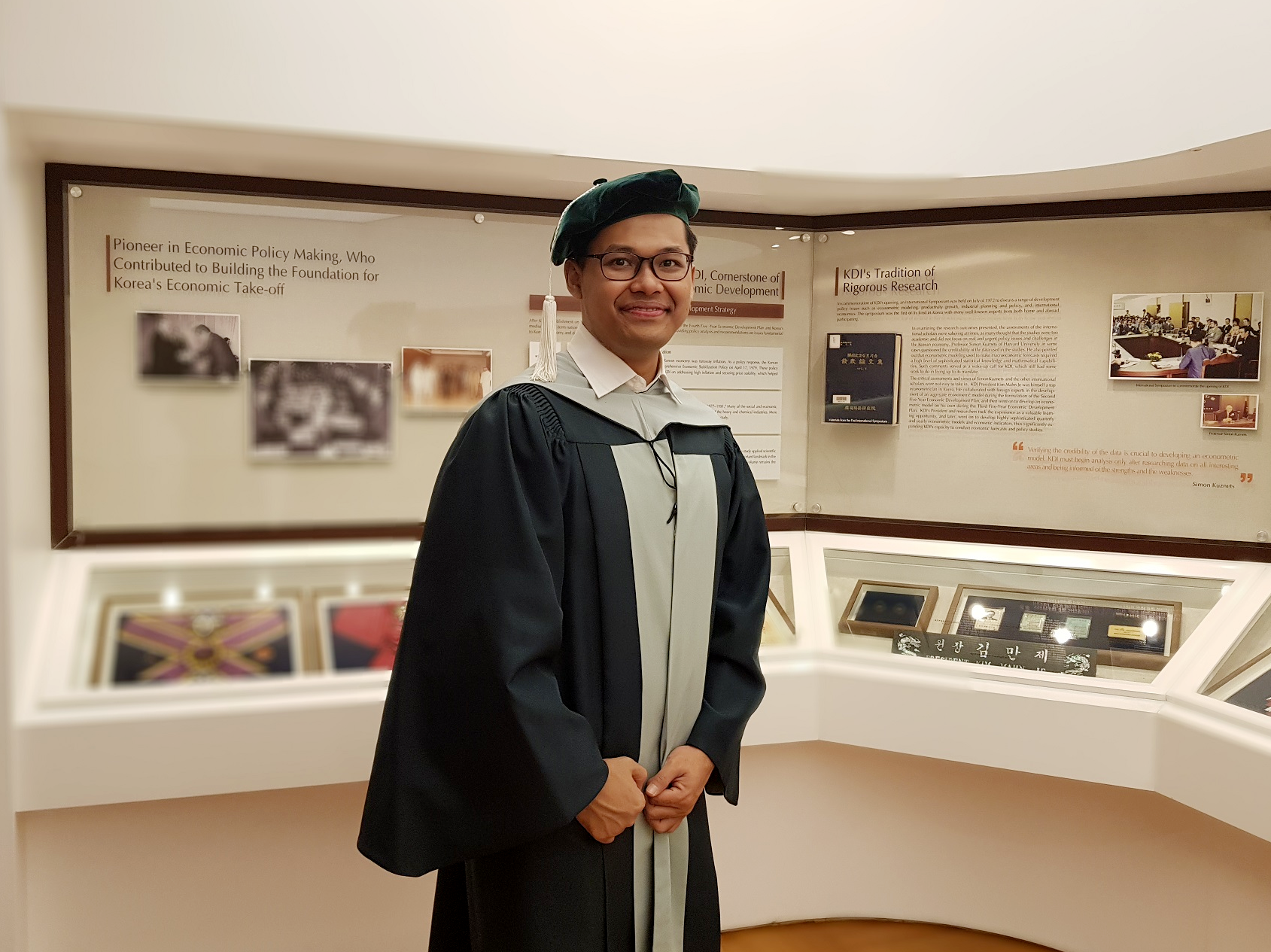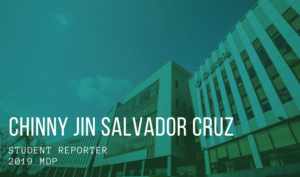
Life after KDIS: A Social Policy Expert's Journey during the Pandemic
- Date 2021-04-15 02:08
- CategoryStory
- Hit1880
Tauchid Komara Yuda (2019 MDP) is a prolific academic, widely recognized for his expertise in social policies. He has authored and co-authored research papers that have been published in esteemed journals in the field of public policy. He is currently a full-time lecturer at Gadjah Mada University, one of the top universities in Indonesia. In this conversation, Tauchid shares his journey as an academic, and the difficulties he experienced finding a job during the pandemic. He also reveals the social policy he is most interested in at the moment and his thoughts on how to address the said issue.

Q) Could you briefly introduce yourself?
I am Tauchid Komara Yuda from Indonesia. In 2020, I graduated from KDI School with a Master of Development Policy in Social Policy. I am an academic who is devoted to learning social policies with particular reference to Indonesia and East Asia. My thesis which analysed the political-economy history of childcare and social policy in South Korea for the past 100 years tangibly illustrates this interest. Additionally, playing the piano and guitar has been my hobby since I was in elementary school.
Before coming to KDI School, I used to work as a researcher and policy consultant in several private organizations. I worked on projects in the areas of policy design, policy consultancy, and research. During those years, I also actively contributed to several prominent national newspapers.
Currently, I am working at the Department of Social Development & Welfare, Gadjah Mada University in Yogyakarta city as a full-time lecturer. Gadjah Mada University is the oldest university in Indonesia and belongs top 1% in the National League Table for the fourth year in a row. In line with my academic background, the courses I teach to students revolve around comparative East Asian social policy studies.
In my opinion, working in the education sector is completely fantastic for career development, with many opportunities for learning, training, and advanced education. Moreover, I have the liberty to do the research I love and travel around the world for international conferences or other academic activities.
In addition to teaching, my current activities include both individual and collaborative research. My recent international publication was co-authored by a prominent social policy scholar, namely Prof. Ka Ho Mok. In addition, my continued academic explorations to marry the political economy and cultural approaches for analysing social policy in East Asia resulted in a theoretical book entitled Social Policy in East Asia: Transforming Ideas and Approaches (2021).
Being an academic, like other professions, however, has its challenges. It can be both emotionally and mentally draining. For example, a great deal of time is spent on administrative tasks. Also, during midterms or finals, I feel extremely frustrated from grading student assignments all day long. Despite these challenges, I love my work as this the ultimate goal of my career, and it is extremely rewarding. I hope that what I taught will have a lasting contribution to my students.
Q) What has changed about you since studying in KDI School?
As a student with an applied social studies background, I found some courses to be challenging. I remember my grade on the midterms in the Analysis Market and Public Policy (AMPP) course was much lower than the grades of my peers. I wondered whether I was wrong to enter this school.
Despite the difficulty, there was a blessing in disguise. AMPP provided me with a solid foundation of critical thinking that made it easier for me to identify causal factors which affect decision-making and quantify them. In social science, the phenomenon affecting conclusion-making is more complicated than we envisaged.
I then realized that the courses taught at KDI School perhaps go beyond the concept of simply understanding. Studying at KDI School has encouraged me to be intellectually curious and helped me let go of self-limiting beliefs and go as far as my mind lets me. This attitude is what I really need to succeed as a lecturer.

Q) You graduated and went back to Indonesia right before the rise of the pandemic. How did it affect you?
Returning to my homeland without having been previously tied with full-time employment status was quite challenging for getting a job. This is mainly because the labor market structure of Indonesia is not fully turning into a high-skilled-based industry. Hence, an undergraduate degree is widely preferred while a master’s graduate needs, at least, 3-5 years of working experience or more to get a job. This requirement added to my difficulty to get hired as my professional experience was less than 3 years.
In my case, it took about 3 months after graduating to get a job offer at Gadjah Mada University as a research associate hired on a contractual basis. It was the first step of my academic career before embarking on a career as a full-time lecturer. I felt so fortunate as the position was offered 1 month before the rise of the pandemic.
At the peak of the pandemic, Gadjah Mada University announced that it will hire a new full-time lecturer. After dealing with a series of online performance tests, I was finally accepted for the prestigious position. I am now able to engage in activities such as teaching, research, publication and other assigned tasks in the Department of Social Development and Welfare.
Another challenge of being a lecturer is the obligation to be registered as a PhD student within 3 years after acceptance. As luck would have it, right after job acceptance, I also got accepted for a PhD program at Lingnan University, Hong Kong. Again, God saves my career path.
Q) How has the pandemic changed the way you carry out your job?
The pandemic challenges me to rethink approaches to teaching as the government mandated remote work and social distancing. Using power point slides on Zoom or Gmeet is quite ineffective in delivering lecture materials and studying. The biggest struggle faced by lecturers and students in the online setting is dealing with an unstable connection and other distractions which have reduced focus. To address that problem, I did not obligate my students to open their camera during lecture as a strategy to maintain the connection stability. Also, I tried to maximize virtual collaboration rooms provided by Zoom or Mural, to ensure students could engage and interact with their peers. It is expected that this method could help boost students’ motivation.
Q) What policy issue are you most passionate about, and why?
Currently, I most passionate about policy issues regarding low fertility rates in South Korea. This represents the largest demographic issue in South Korea, in that it needs more children to address the rapid ageing of the population more than any other country in the world. A condition where the fertility rate is low, while the productive population is now gradually entering the pension period or becoming senior citizens, will lead to a serious problem on social policy sustainability that is important for addressing social risks. It is because potential contributions of the working (productive) population to societal well-being through tax extraction are turning low. The case of workforce shortages in this country, which is also pronounced in other East Asia countries in the last decade, could support this argument.
Surprisingly, even though many child and family initiatives, including boyungnyo jiwon (the support for childcare fees), yangyuk sudang (the fostering allowance) and yuga hyujik geubyeo (the parental leave allowance have been implemented, it appears that initiatives have a less significant impact in reversing the low birth rate trend. Instead, the shrink of fertility rate has precisely reached an alarming level, where it continues falling from around 1 to 0.92 in 2019 – the world’s lowest.
It is worth noting that the current pandemic crisis could potentially discourage young Koreans from marrying and having children as uncertainty and unemployment continues to spike. This occurs while many Koreans decide to delay their age of marriage, 32.8 years for men on average and 30.1 years for women on average. Surprisingly, more Koreans even opt to "live alone" as marriage and family are considered as costly. Only those who are wealthy can do that!
During the year I spent living and learning in Korea, I also found surprising fact. I intensively talked with successful immigrant who is now in Daejeon. She said that there is a new trend among low-educated Korean men marrying foreign women commonly from Philippines, Vietnam and China and having babies from that marriage. Few of them are marrying Indonesians as well. I met some of them at Daejeon’s traditional market. From their stories, it seems they were connected through matchmaking services and agencies. From my view, if this trend increases, it could contribute to boosting the population. Yet I know this would not run smoothly as cultural issues pose a barrier for intercultural or interracial marriages. I look forward to what will happen in the future!
Q) What initiatives do you think can help address this issue?
When traditional measures such as family-related policies are not effective in overcoming demographic issues, alternative steps should be considered. One of the ideas that I pay close attention to is the importance of creating an international working hub zone to encourage high-professional workers from around the world to work in Korea. Moreover, the initiative encouraging more women and the elderly to stay in the labour market could also be an alternative step. This could minimize the economic downturn from a declining productive population.
Although such ideas seem politically and culturally controversial, it could be an alternative to boost the productive population composition in Korea which can increase potential tax contributions for social policy financing.
Q) What are your long-term plans?
Regarding my long-term career plan, I would like to pursue my dream of becoming an internationally recognized scholar with expertise in East Asian social policy. I think pursing my career as a lecturer is the right path towards realizing that ambition.


Related News
-
Story805 days ago
KDI School Bookshelf #1: Book Recommendations by Alumni -
Story832 days ago
Establishment of Botswana Alumni Association#Alumni #Alumni Gathering #kdi #KDI school #kdischool #Alumni Association #botswana
-
Story836 days ago
Letters from the New Alumni Association Representatives#Interview #Alumni #kdi #KDIS #Kazakhstan #KDI school #kdischool #Alumni Association #Cameroon #message #australia #madagascar #russia #sierra leone #zimbabwe
